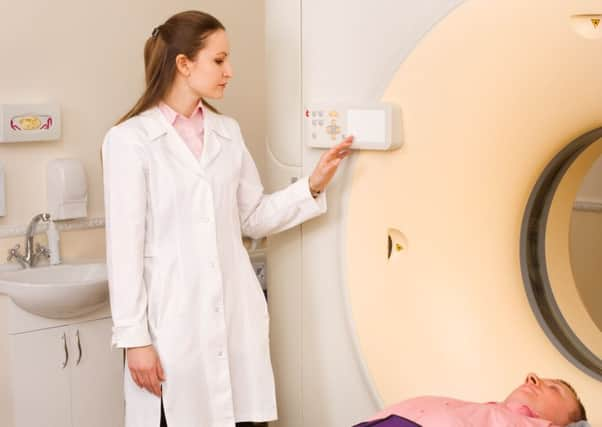High radiation dose could treat prostate cancer in single visit


A study, presented at the European Society for Radiotherapy and Oncology (ESTRO) annual congress, found the technique was safe and effective for treating those with a low-risk form of the disease.
The method was also successful in treating some men with medium and high-risk prostate cancer, but more work is needed to improve the results, the researchers said.
Advertisement
Hide AdAdvertisement
Hide AdThe new treatment, known as high dose-rate brachytherapy, delivers radiation using a set of tiny tubes directly to the tumour.
Brachytherapy has already been used by some hospitals to treat patients but, as with most radiotherapy, requires men to visit hospital for a series of low-dose treatments over days or weeks.
In this new study, researchers from the Mount Vernon Cancer Centre in London and the Christie NHS Foundation Trust in Manchester studied 441 men with prostate cancer.
The men were categorised as being at a low, medium or high risk of the cancer spreading. All were treated with a single, high dose of radiation at UK hospitals between 2013 and last year.
While 166 also received hormone therapy, none had surgery or chemotherapy.
After two years, 94 per cent of the men showed no sign of the cancer returning, according to levels of prostate specific antigen (PSA) that can indicate presence of the disease in their blood, the researchers said.
After three years, 88 per cent of the men showed no sign of the cancer returning, including 100 per cent of the men considered low risk, 86 per cent of the medium-risk group and 75 per cent of the high-risk group.
The researchers identified the cancer had returned to the prostates of 15 men and spread to other parts of the body in ten others.
Advertisement
Hide AdAdvertisement
Hide AdDr Hannah Tharmalingam, a researcher at Mount Vernon Cancer Centre and The Christie NHS Foundation Trust, said the treatment has few side effects. She said she believed it would be possible to increase the dose further in men with a greater risk of the disease spreading.
Dr Tharmalingam said: “These results indicate that high dose-rate brachytherapy is a safe and effective treatment for men with low-risk prostate cancer, but further research is needed in medium and high-risk patients to see if the results can be improved with a higher dose.”